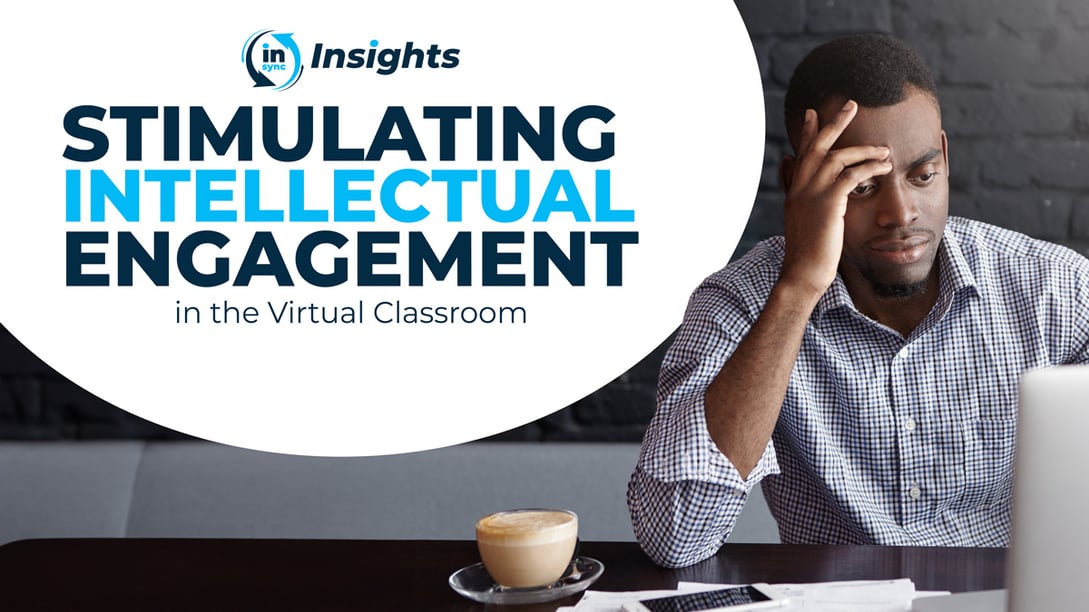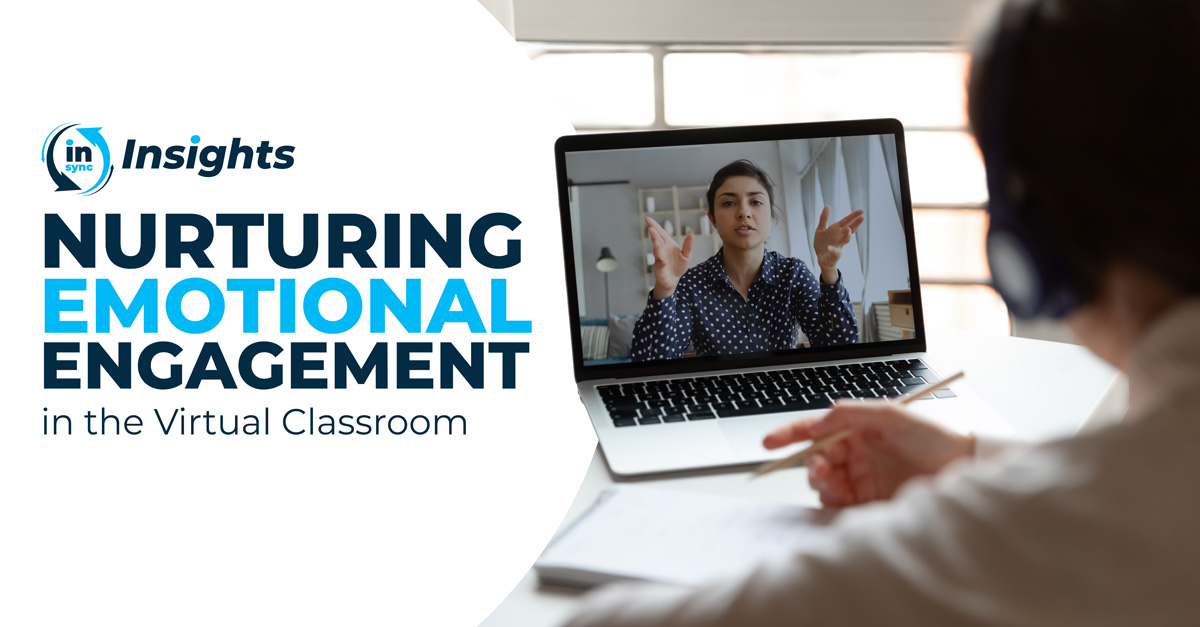Nurturing Emotional Engagement in the Virtual Classroom
People often perceive corporate training as a mandatory, impersonal process: they fulfill the requirements and proceed to the next task. This...
3 min read
 Jennifer Hofmann
:
Sep 8, 2023 9:39:00 AM
Jennifer Hofmann
:
Sep 8, 2023 9:39:00 AM

People often wonder if virtual online learning can be as effective as in-person training. Is it a mere compromise, a second-best option?
I firmly believe that with an authentic and well-designed approach, virtual training can be just as impactful and effective as traditional classroom settings. By prioritizing learner engagement and creating immersive experiences, virtual classrooms have the potential to deliver genuine and meaningful learning experiences akin to their physical counterparts.
In the same way they can foster environmental engagement, facilitators have a unique opportunity in the virtual classroom to stimulate intellectual engagement. This opportunity isn’t NEW - great teachers have piqued our interest and motivated our participation since the earliest educational experiences. But many of us have doubts as to whether intellectual engagement in the virtual classroom can rise to the levels we expect in a more traditional approach.
Intellectual engagement involves more than learners feeling mentally inspired by training content. Facilitators must recognize that the learning environment is changed by how people are learning, and how much they are learning, and manage the class accordingly.
Dr. Charles Dye explains that facilitators need to focus on specific, proactive action in order to support this dimension of engagement:
Research demonstrates that activities that might exemplify this aspect of learner engagement would include asking sophisticated questions (particularly “follow-on” questions that build on a point made earlier in the same discussion) and a sense of alignment of subject matter with task and performance (Cooper, 2010) – they may make frequent comparisons to practices “in the field,” and questions from such a person would be directed at the question of real-world implementations of theoretical or activity-based concepts presented in the learning experience.
Now, let's consider the rise of hybrid learning environments and the shift towards hybrid/remote work. Hybrid learning provides flexibility in how and where students learn, fostering an environment that caters to diverse learning needs. Similarly, the transition to hybrid or remote work has necessitated the adaptation of learning strategies to suit these new environments.
In this context, virtual classroom platforms play a pivotal role. They provide the tools necessary for increasing learner engagement in real time, regardless of location.
5 Engagement Strategies for Virtual Learning That Stimulate Intellectual Engagement
Virtual classroom facilitators can stimulate intellectual engagement by:
Evolving technology has significantly transformed the learning and development landscape, introducing new learning strategies and creating virtual classroom platforms that deliver immense benefits. These platforms have the ability to out-perform traditional learning methods, increasing learner engagement and fostering a more interactive and collaborative environment.
With real-time features such as live chats and video conferencing, virtual classroom platforms enable immediate feedback and interaction among educators and learners. This immediacy not only fosters active participation but also facilitates prompt clarification of doubts, ensuring that learning is continuous and efficient. Furthermore, these platforms offer a range of multimedia tools that cater to different learning styles, thereby making education more inclusive and personalized.
To truly maximize the impact of your virtual facilitation, it's important to go beyond superficial learner engagement. By delivering content in a way that ignites learners' curiosity and enthusiasm, you can ensure lasting results. Take your virtual facilitation to the next level by incorporating these five proven engagement strategies into your repertoire. The effects will be noticeable as learner engagement rises from the very start.
What's Next for Virtual Trainers?
Earn your Virtual Facilitation Certification today! Sign up for InSync's Virtual Classroom Facilitation Mastery certificate program and become an expert in fostering engagement and creating dynamic virtual learning experiences. Take the next step in shaping impactful virtual classrooms.
InSync's InQuire Engagement Framework™, developed by InSync’s Dr. Charles Dye, is based on an operationalized situated cognition model and neuroscience, and optimizes learner trajectory by considering the learner, the learning environment, and the learner-environment interaction through measurable and well-defined measures of effect. Access the original research here: https://opencommons.uconn.edu/dissertations/2403/

People often perceive corporate training as a mandatory, impersonal process: they fulfill the requirements and proceed to the next task. This...